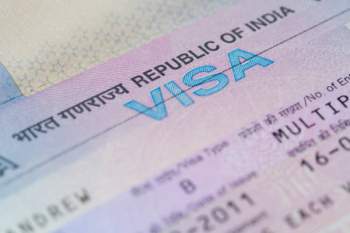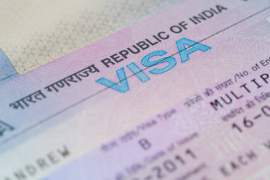
Visas to India

Related Forms
I-129 H1B Petition for a Nonimmigrant Worker
Form I-130 Petition for Alien Relative
Form I-129F Petition for Alien Fiance
Form DS-156 Nonimmigrant Visa Application
Form DS-160 Online Nonimmigrant Visa Electronic Application
Form DS-2019 Application for the Certificate of Eligibility for Exchange Visitor(J-1) Status
Form DS-7002A Training / Internship Placement Plan
Form I-20M-N Certificate of Eligibility for Nonimmigrant(M-1) Student
View AllDuring the 2004 presidential election in the United States, outsourcing was a topic of much discussion during the campaigns of and debates between presidential hopeful Democrat John Kerry and eventual winner of the race, incumbent president George W. Bush.
The former was notably vocal in his opposition to the phenomenon of American companies subcontracting their labor to separate parties overseas, presumably to cut down on expenses, as well as incorporating itself in regions that are not subject to United States tax laws.
1. The outsourcing of consular visa review – One of the hallmarks of the visa application process traditionally has been the identity of consulates and embassies abroad to serve as points of contact for both prospective travelers and the larger parent offices that oversaw their affairs. In October of 2007, though, processing services were officially outsourced to Travisa Outsourcing, Inc. by the consular offices of India.
Visa applicants must now go through this third party to obtain a travel visa to India. Visa application forms, it should be noted, as well as being outsourced may also be completely digitized as part of the worldwide push for sweeping changes in consular processes.
2. The Overseas Citizens of India program – Knowing when immigration terms are and are not interchangeable is seemingly half the battle when it comes to deciphering the law. For instance, though we might employ the term "climate refugee" for an individual, he or she may not be recognized as a refugee under conventional law. As for the Overseas Citizen of India program, the common assumption is that the policy grants dual nationality to the recipient, but those who earn this distinction are not actual citizens of India.
Visa rights, more along the lines of rights of permanent residency rights as interpreted in the U.S., are all that are conferred upon the bearer. For someone looking for more information on becoming an Overseas Citizen of India, visa application processes and visa renewal procedure, a Foreigner Regional Registration office should be contacted.
3. Missionary visas – In India, visa authorities require any foreign visitor looking to disseminate religious material to submit for a "missionary visa". Violators of this concept are subject to the criminal statutes of India. Visa application for a religious-based clearance to publicly speak and organize is thus needed to be filled out. Though enforcement of this policy is not uniform across India, visa applicants with this purpose in mind are encouraged to go through with securing documentation.
NEXT: Japan





















